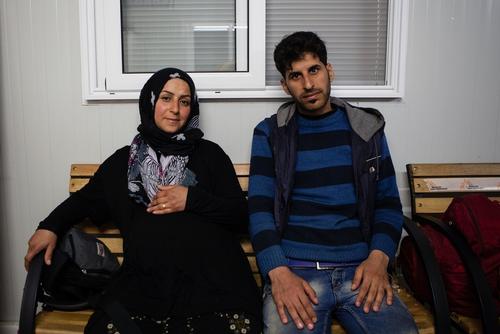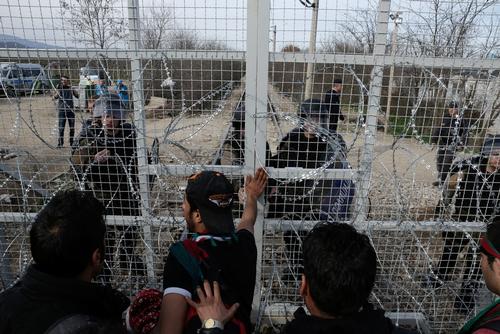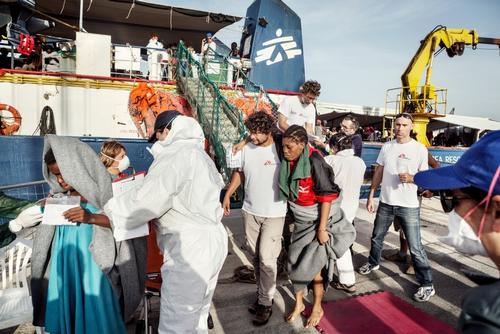The winding road across the wheat fields near the Greek village of Idomeni is full of people carrying large bags on their shoulders, babies in their arms and putting one step in front of the other. The stream of humanity continues day and night but not an average of 150 a day, (and only Syrians and the Iraqis who are lucky enough to have a passport or ID card from their home country) can continue the journey out of this place and across the border into the Former Yugoslav Republic of Macedonia (FYROM) and onwards to western and northern Europe. Few are leaving but more, many more keep coming, only to end up getting stranded in what is becoming unsustainable humanitarian situation. Today, in a transit camp that has the capacity to host 1,500 people, there are more than 11,000 crammed in trapped without information, in a mix of anxiety and delusion.
Among those stuck at the freezing Idomeni camp are many families. Piman, who worked as an English teacher before leaving Syria, has been on the road for two months now. “I’m here with my family, sleeping in this small tent, we never thought to find us in this horrible situation. When we left our city, my kids wanted to bring their toys and their books with us, I was telling them, don’t worry. We will get new toys in our new house. They keep asking, where is our new house?”
In Idomeni camp the situation remains extremely chaotic
Daniela, an MSF nurse in Idomeni sums it up “there is confusion, stress. Lack of reliable information. There is a growing feeling of anger. Many refugees have been waiting here for over ten days. People are extremely exhausted.”
In the clinic that MSF operates in Idomeni, whole families, pregnant woman and kids arrive in a constant stream, as do many disabled people and elderly people suffering from chronic diseases. People, including babies and the elderly, are forced to sleep out in the cold, with just with a sleeping bag to keep them warm. The big tents made available by MSF have been full for days, and hundreds of small tents, are spread everywhere, even next to the train track. Omar, 24 years old, a Palestinian refugee from Homs camp in Syria is exhausted “This is making me very nervous, I don’t know what is coming next. This waiting is killing me. We feel ignored here.”
"I've been here for a week and I have no idea how much longer I'll have to stay. The border is closed and they don’t allow us to cross. The camp is unliveable. It is horrible. I want to find a safe way to continue, I want to find a place where I can raise my son. Help us to find a safe path," repeats Mustafa, a refugee from northern Syria who arrived in Idomeni with his wife Zuzan and two young cousins. He is one of the hundreds sleeping in a bed. We won’t call them the lucky ones but for other families the night is too cold outside on the ground of a muddy campsite.

Entire families huddle round the makeshift fire to stay warm, as they wait for another night to pass. At the same time, in the local hospital of Polykasto, Rula, a 30 year old woman from Aleppo, gives birth to her second son who she names Abdulrahmane. She arrived heavily pregnant in Idomeni with her husband Fahad and her one years old son, Oman but her waters broke in the MSF clinic and the team transferred her to hospital.
From 27 February to 1 March, MSF medical teams conducted 756 medical consultations. The main diseases are respiratory tract and gastrointestinal infections (associated with inadequate access to hygiene facilities). The majority were women and children under the age of five. MSF is providing shelter to more than 4,000 people and 34,000 meals per day.





